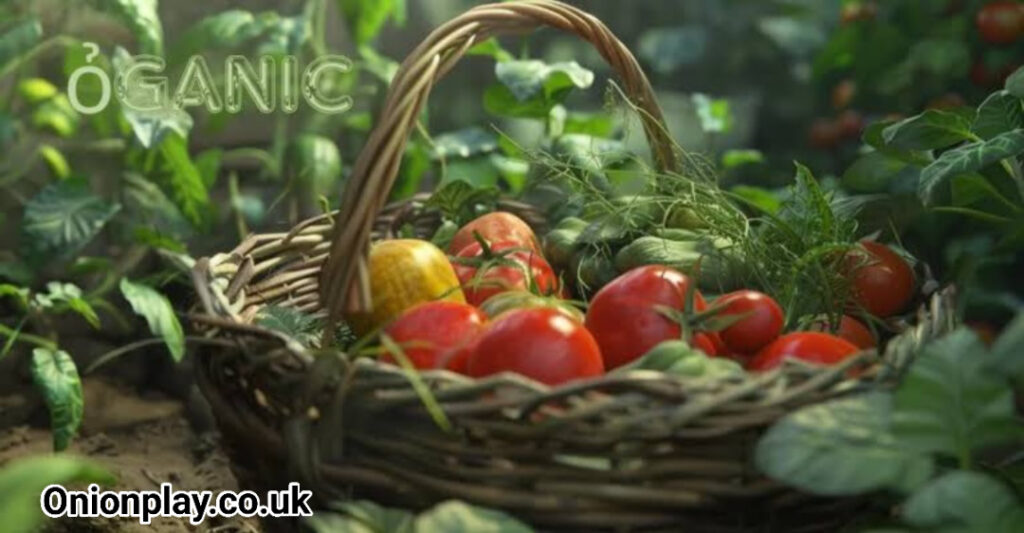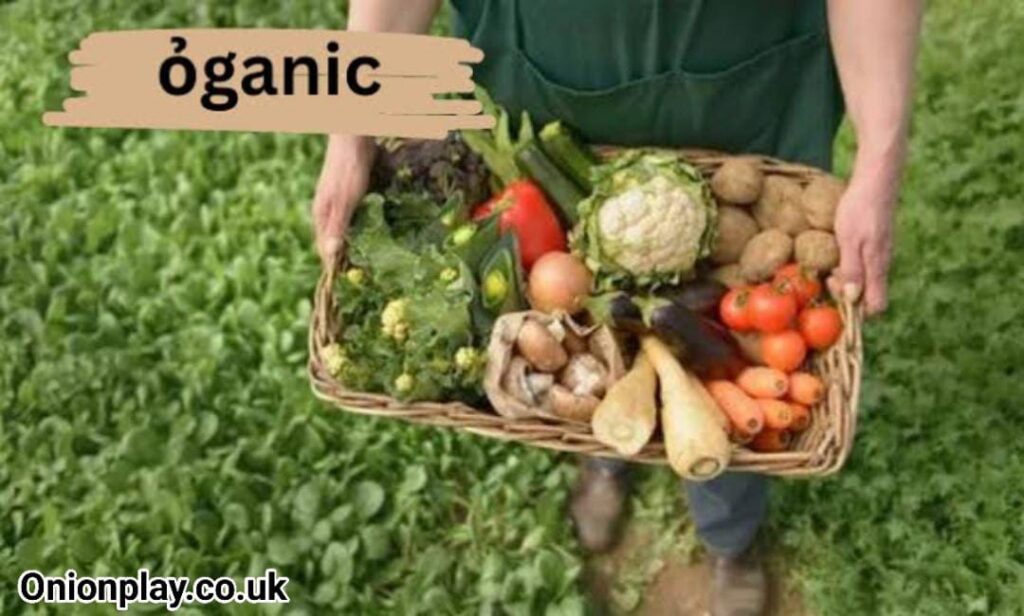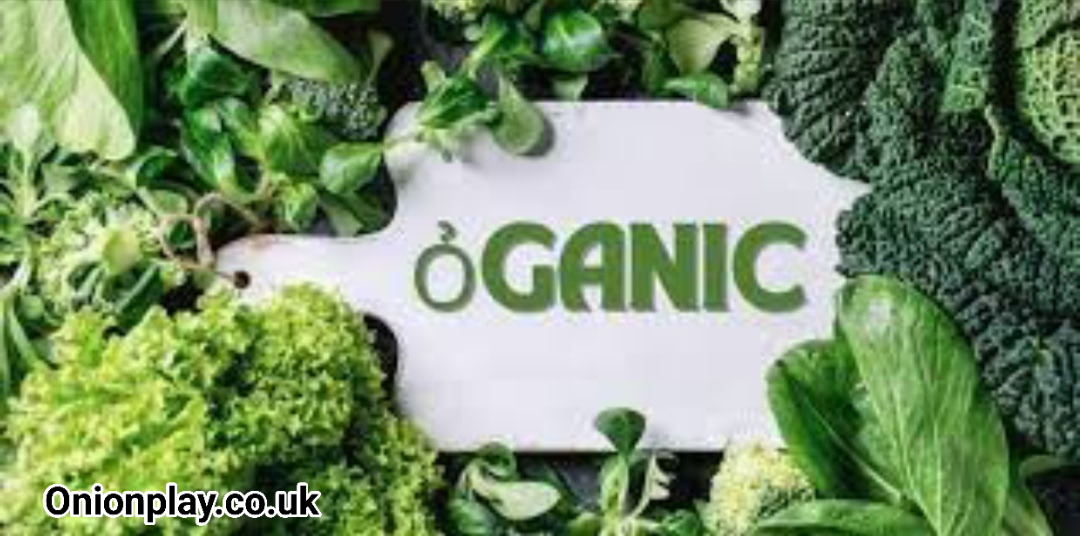Introduction
In recent years, the organic movement has gained significant traction worldwide. From food and beverages to skincare and clothing, the demand for organic products is growing steadily. But what does “organic” really mean, and why is it becoming so popular? This article will explore the world of organic products, delving into their origins, benefits, challenges, and potential future developments. Whether you are a seasoned organic enthusiast or just beginning to learn about the concept, this comprehensive guide will provide you with a deep understanding of what it truly means to go organic.
Understanding Organic
The term “organic” refers to the methods used to grow and process agricultural products. Organic farming practices are designed to promote soil and water conservation, reduce pollution, and avoid the use of synthetic chemicals. Farmers who grow organic produce do not rely on conventional methods to fertilize the soil, control weeds, or prevent livestock disease. Instead of using chemical weed killers, for example, organic farmers might employ crop rotations, apply mulch or manure, and use other natural methods to keep weeds at bay.
When it comes to livestock, organic means that animals are raised without the use of antibiotics, growth hormones, or any synthetic chemicals. These animals are fed organic feed, have access to the outdoors, and are cared for in a way that allows them to exhibit their natural behaviors. For processed organic products, such as canned soup or frozen dinners, the organic ingredients must make up at least 95% of the product by weight. The remaining 5% must come from a list of approved substances, ensuring that organic products maintain a high standard of purity and integrity.
The History of Organic Farming
Organic farming has deep roots, tracing back to ancient civilizations that used natural methods to cultivate crops. However, the modern organic movement began in the early 20th century as a response to the industrialization of agriculture. As chemical fertilizers and pesticides became widely used, some farmers and consumers began to question the long-term effects of these practices on human health and the environment. The term “organic farming” was coined in the 1940s by Lord Northbourne, a British agriculturalist who emphasized the importance of farming methods that maintain soil health. His ideas were further developed by pioneers like Sir Albert Howard and J.I. Rodale, who advocated for a return to traditional farming practices that work in harmony with nature.
The organic movement gained momentum in the 1960s and 1970s, fueled by growing environmental awareness and concerns about the safety of chemical pesticides. The establishment of organic certification programs in the 1990s marked a significant milestone, as it provided a way for consumers to identify and trust organic products. This certification ensures that products labeled as organic meet strict standards, giving consumers confidence in the quality and authenticity of the products they purchase.
The Benefits of Organic Products
Organic products offer numerous benefits, which have contributed to their growing popularity. One of the primary advantages is the potential health benefits. Organic foods are often considered healthier because they are free from synthetic pesticides, herbicides, and fertilizers, which can leave harmful residues on food. Additionally, organic livestock is not treated with antibiotics or growth hormones, reducing the risk of these substances entering the human food chain. Some studies suggest that organic foods may have higher nutritional value, including increased levels of vitamins, minerals, and antioxidants.
Another significant benefit of organic farming is its positive impact on the environment. Organic farming practices are designed to be more sustainable and environmentally friendly. By avoiding synthetic chemicals and promoting biodiversity, organic farming helps protect ecosystems, improve soil health, and reduce pollution. Organic farms typically use less energy and produce fewer greenhouse gases than conventional farms, contributing to a more sustainable food system.
Animal welfare is another important consideration in organic farming. Organic standards require that animals are raised in conditions that allow them to engage in natural behaviors, such as grazing and rooting. These animals must have access to the outdoors and be fed organic feed, contributing to better animal welfare compared to conventional farming methods, which often involve confinement and the use of growth hormones or antibiotics.
Many consumers also believe that organic products taste better than non-organic ones. This may be due to the focus on quality rather than quantity in organic farming. Organic crops are grown in healthier soil, which can result in more robust flavors. Similarly, organic livestock is often raised on smaller, more diversified farms, leading to higher-quality meat and dairy products.
Supporting local farmers is another benefit of choosing organic products. Purchasing organic often means supporting small-scale farmers who use sustainable practices. This not only helps preserve rural communities and local economies but also promotes a more equitable food system. By choosing organic, consumers can contribute to the livelihoods of farmers who are committed to maintaining the health of the environment and their communities.

Challenges and Criticisms of Organic Farming
Despite the many benefits, organic farming is not without its challenges and criticisms. One of the most significant challenges is the higher cost of organic products. Organic farming is more labor-intensive and often yields lower quantities of produce, leading to higher prices for consumers. The cost of organic certification and the need for organic feed also contribute to these higher prices. As a result, organic products may be less accessible to low-income consumers, raising concerns about food equity and the inclusivity of the organic movement.
Another major criticism of organic farming is the issue of lower yields. Organic farming generally produces lower yields than conventional farming, leading to debates about whether organic farming can feed the world’s growing population. Some studies suggest that organic farming can be just as productive as conventional farming under certain conditions, but others argue that it would require more land to produce the same amount of food. This could potentially lead to deforestation and habitat loss, offsetting some of the environmental benefits of organic farming.
The process of obtaining organic certification can also be challenging for farmers, especially small-scale producers. The certification process involves adhering to strict guidelines, keeping detailed records, and undergoing regular inspections. This can be a barrier for some farmers who want to transition to organic practices but cannot afford the costs or navigate the bureaucracy. Additionally, not all products labeled as “organic” are created equal, leading to concerns about misleading labels. Some critics argue that the organic label can be misleading, particularly in the case of processed foods. Just because a product is labeled as organic does not necessarily mean it is healthy. For example, organic junk food is still junk food, even if it is made with organic ingredients. Additionally, some large-scale organic farms may not adhere to the same ethical and environmental principles that consumers associate with the organic movement.
Environmental trade-offs are another concern with organic farming. While organic farming has many environmental benefits, it is not without its trade-offs. For instance, organic farming can sometimes result in higher levels of nitrogen runoff, which can contribute to water pollution. Additionally, organic farming may require more land to produce the same amount of food, which could lead to deforestation and habitat loss, potentially negating some of the environmental benefits.
The Future of Organic Products
The future of organic products is promising, with several trends and innovations likely to shape the industry in the coming years. One significant trend is the push to make organic food more accessible and affordable. As consumer demand for organic products continues to grow, there may be efforts to scale up organic farming practices, improve supply chains, and reduce the cost of organic certification. Governments and organizations could introduce policies and programs to support organic farming and make organic products more widely available, helping to address some of the challenges related to cost and accessibility.
Technological innovations could also play a crucial role in the future of organic farming. Advances in technology could help address some of the challenges associated with organic farming, such as low yields and labor-intensive practices. For example, precision agriculture technologies, such as drones and sensors, could help organic farmers monitor and manage their crops more efficiently. Similarly, new breeding techniques could lead to the development of crop varieties that are better suited to organic farming conditions, potentially increasing yields and making organic farming more viable on a larger scale.

The concept of regenerative agriculture is gaining traction within the organic movement and could influence the future of organic farming. Regenerative agriculture focuses on restoring soil health and biodiversity, going beyond organic practices to rebuild and enhance ecosystems. As this approach gains popularity, there may be a shift towards regenerative organic farming, which combines the principles of organic farming with a stronger emphasis on ecosystem restoration and sustainability.
Consumer education will also be essential for the future growth of the organic market. As the organic market continues to grow, there will be a need for increased consumer education about what organic truly means. This includes understanding the benefits and limitations of organic products, as well as the differences between organic and other sustainable food labels, such as “natural” or “non-GMO.” Educated consumers are more likely to make informed choices and support ethical and sustainable practices, helping to drive the demand for organic products.
Global expansion is another area of potential growth for the organic industry. While organic farming is well-established in many parts of the world, there is still significant potential for growth in developing countries. As awareness of the environmental and health benefits of organic farming spreads, more farmers in these regions may adopt organic practices. This could lead to the expansion of the global organic market and create new opportunities for farmers and consumers alike.
Conclusion
The organic movement represents a significant shift in the way we think about food, farming, and sustainability. By choosing organic products, consumers can support farming practices that are better for the environment, animal welfare, and human health. However, organic farming is not without its challenges, including higher costs, lower yields, and the complexities of certification. As the organic industry continues to grow, it will be important to address these challenges while staying true to the principles of organic farming.
The future of organic products is bright, with opportunities for increased accessibility, technological innovation, and global expansion. By continuing to educate consumers and support organic farmers, we can help create a more sustainable and equitable food system for future generations.
Also read this;key-specs-and-accessories-what-retailers-need-to-know-from-portable-toilet-suppliers

Leave a Reply